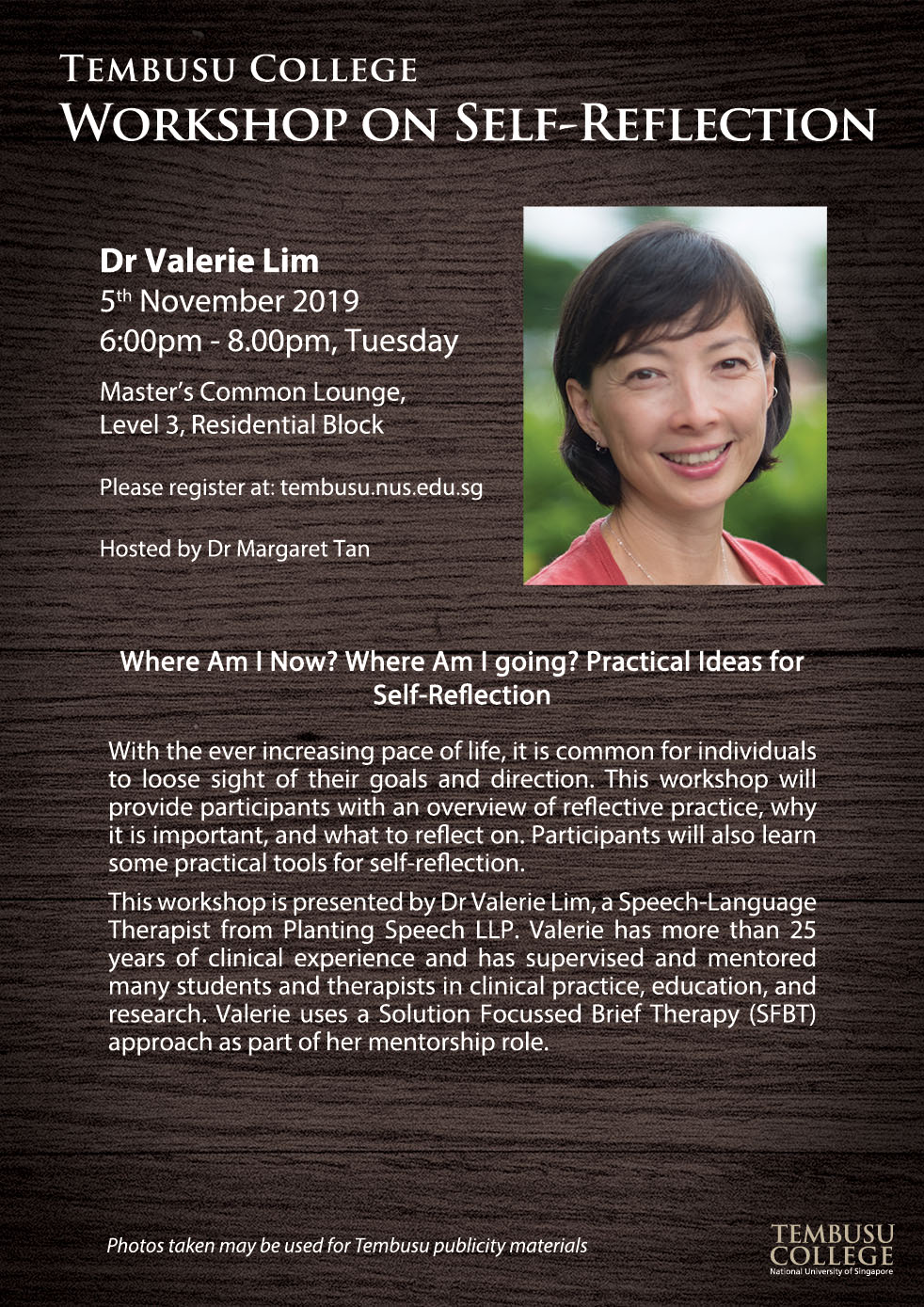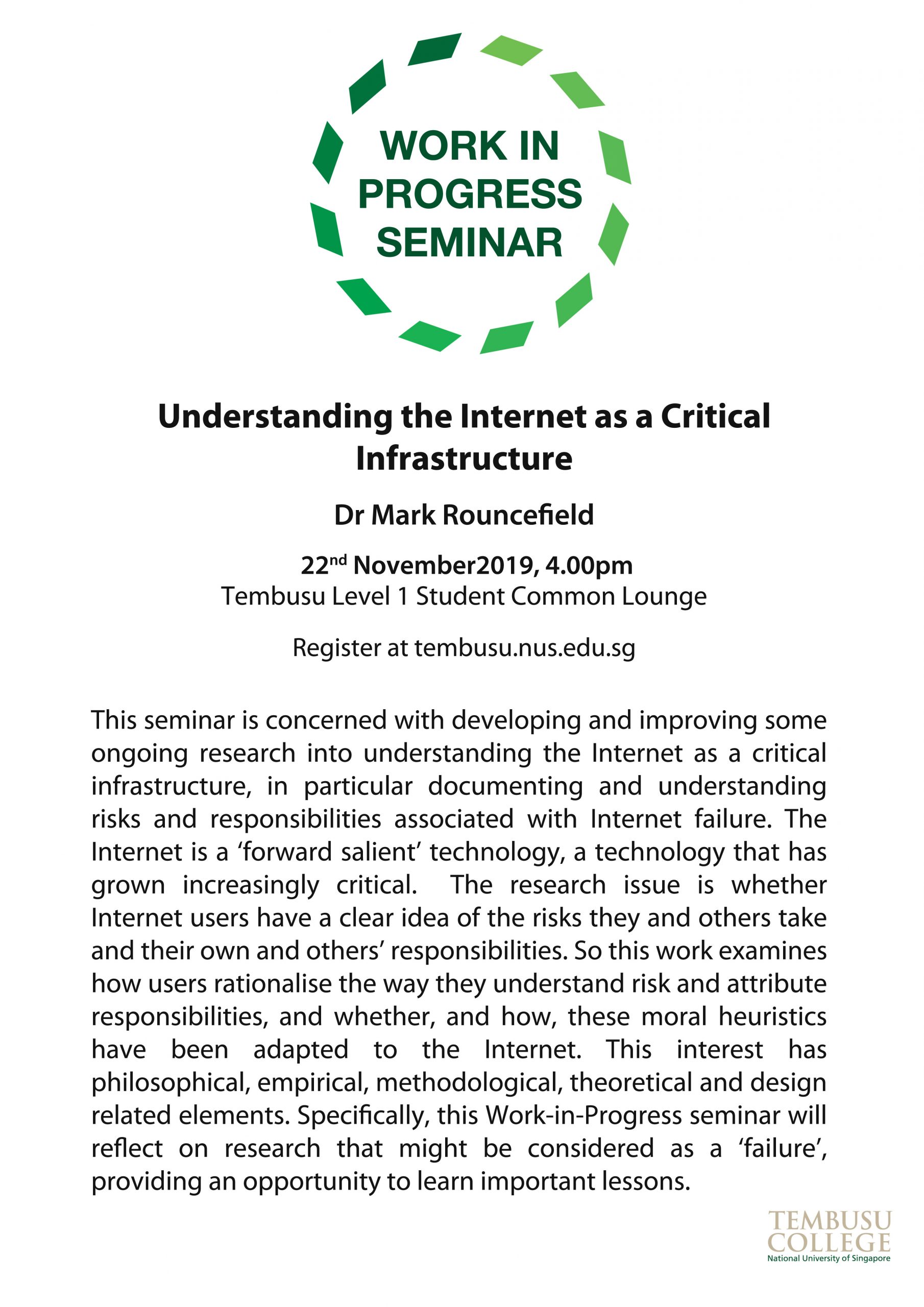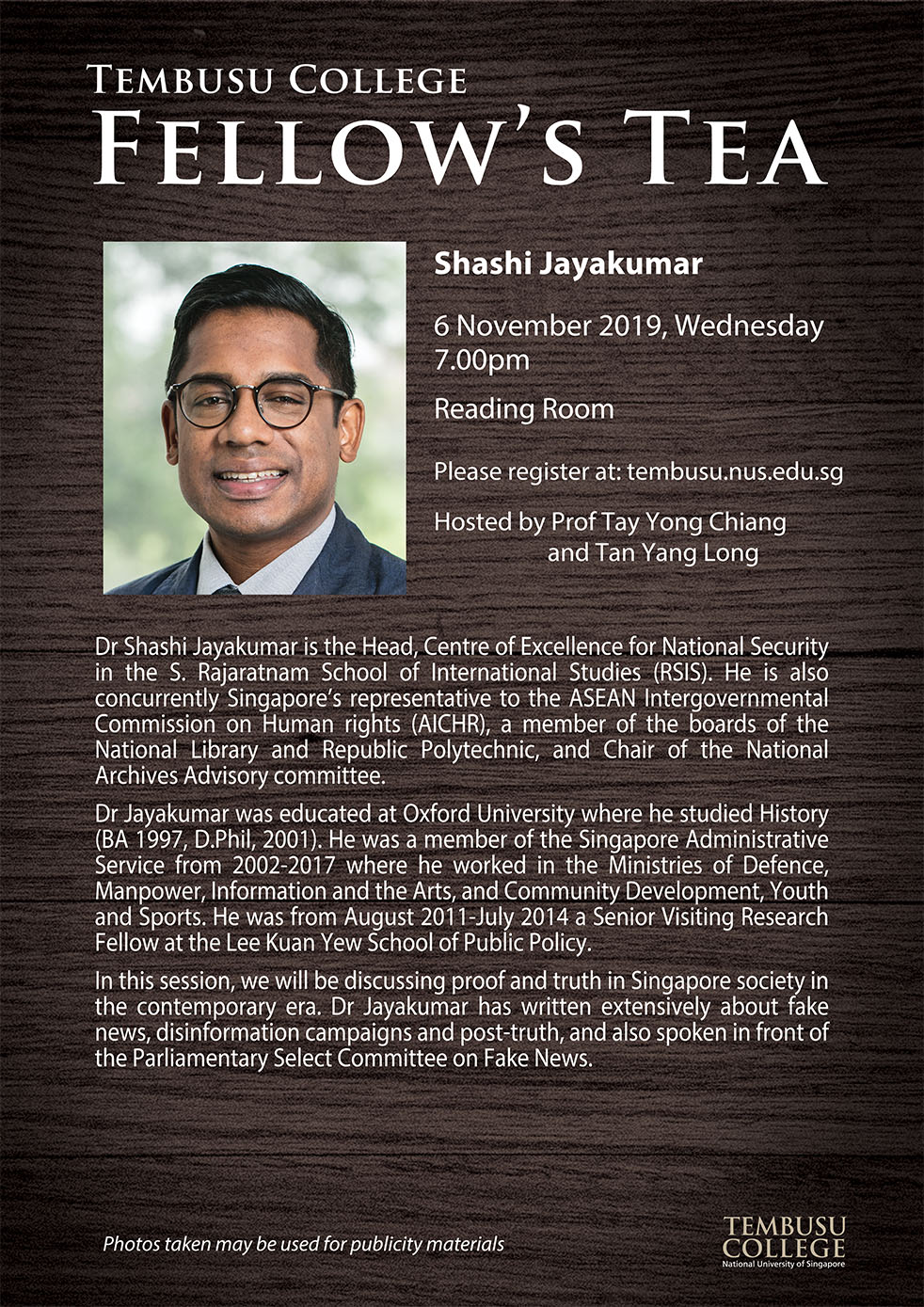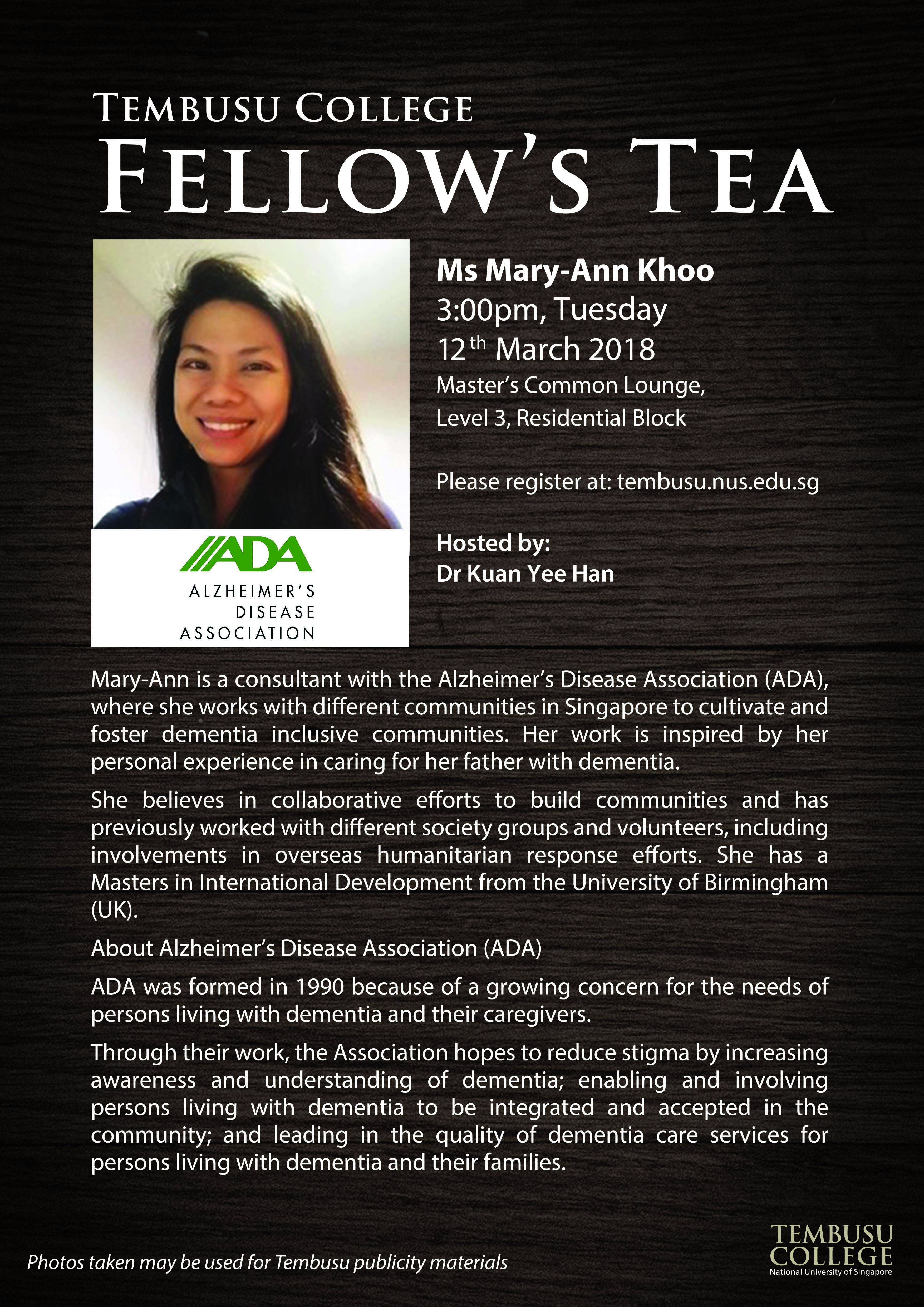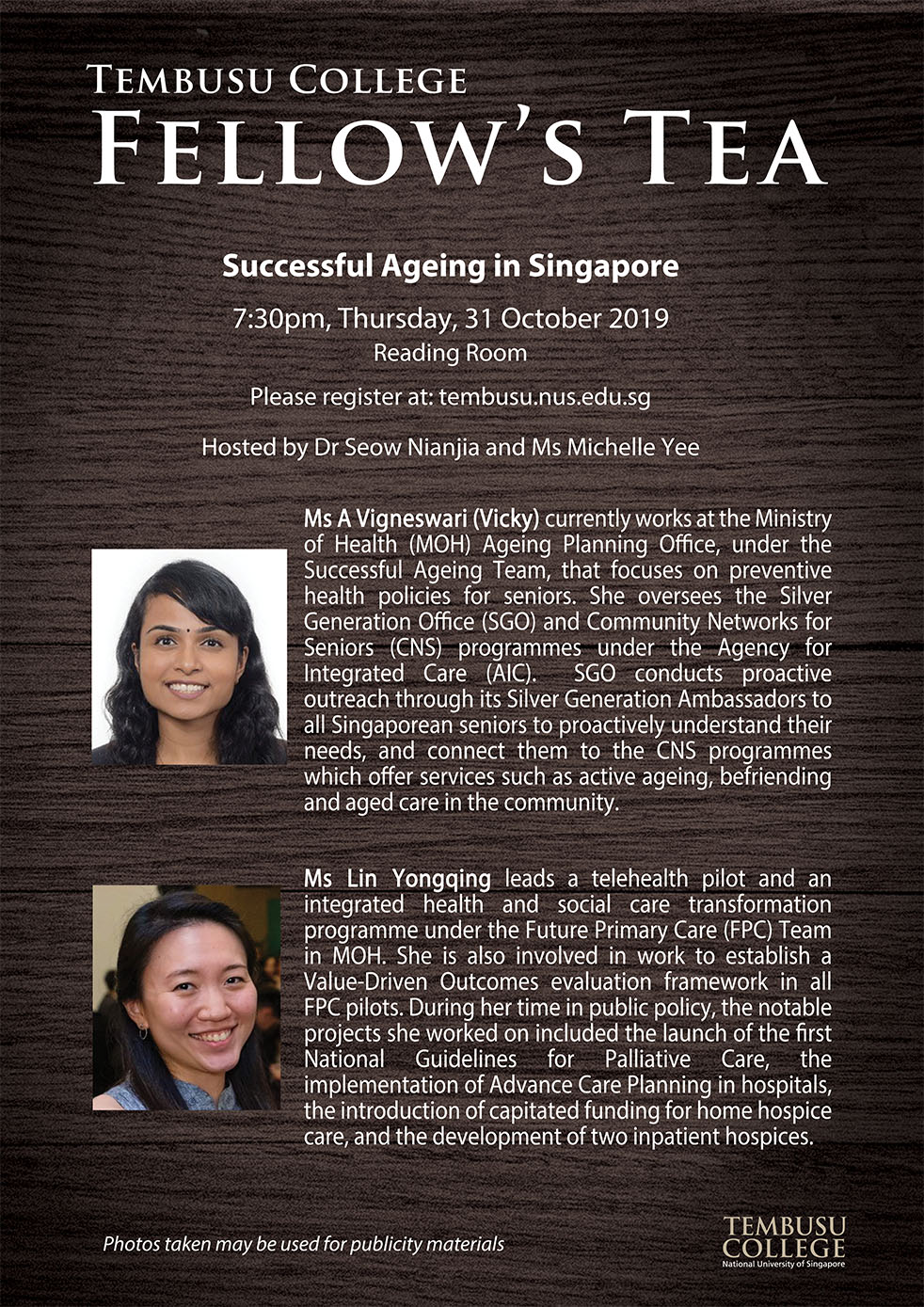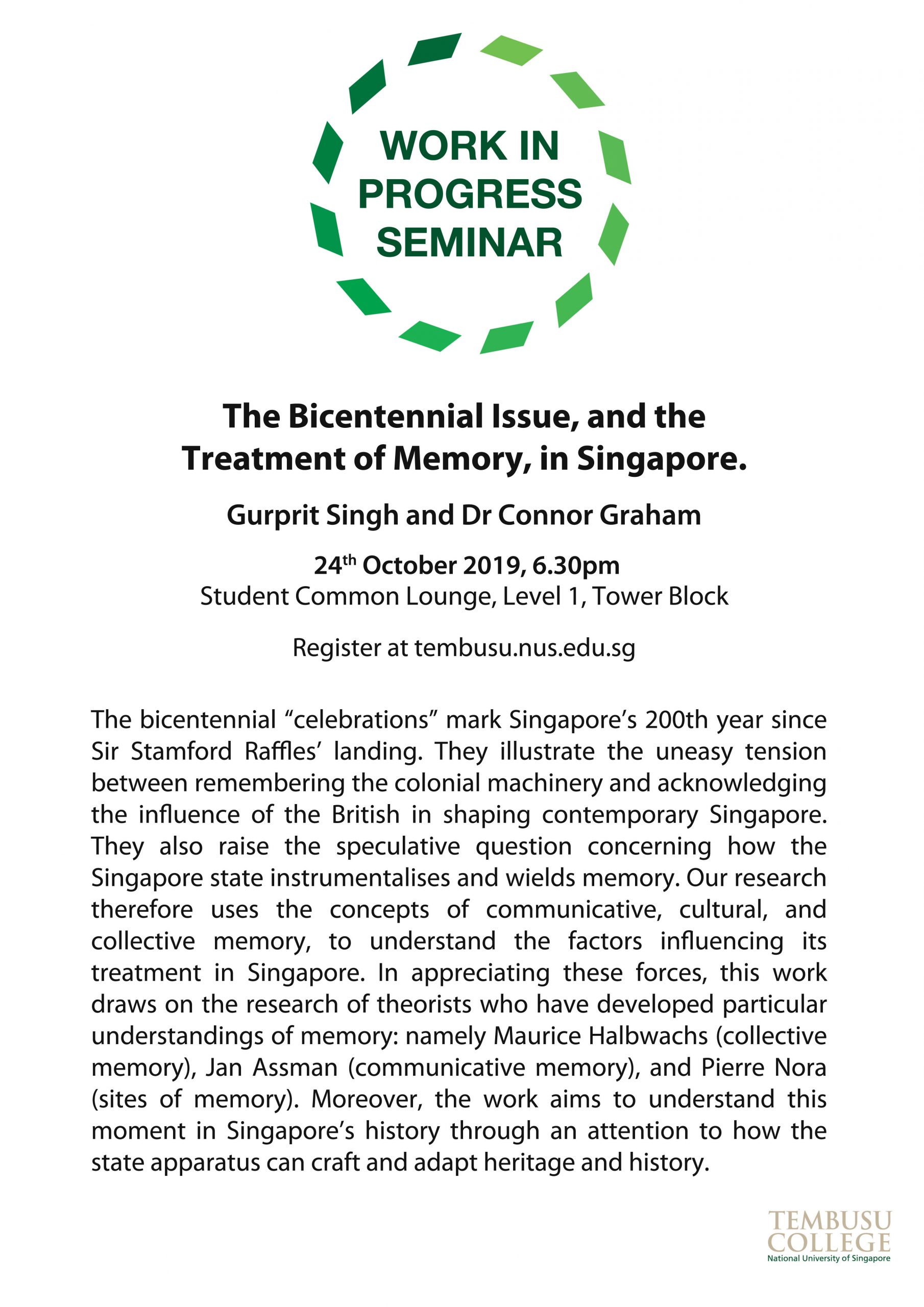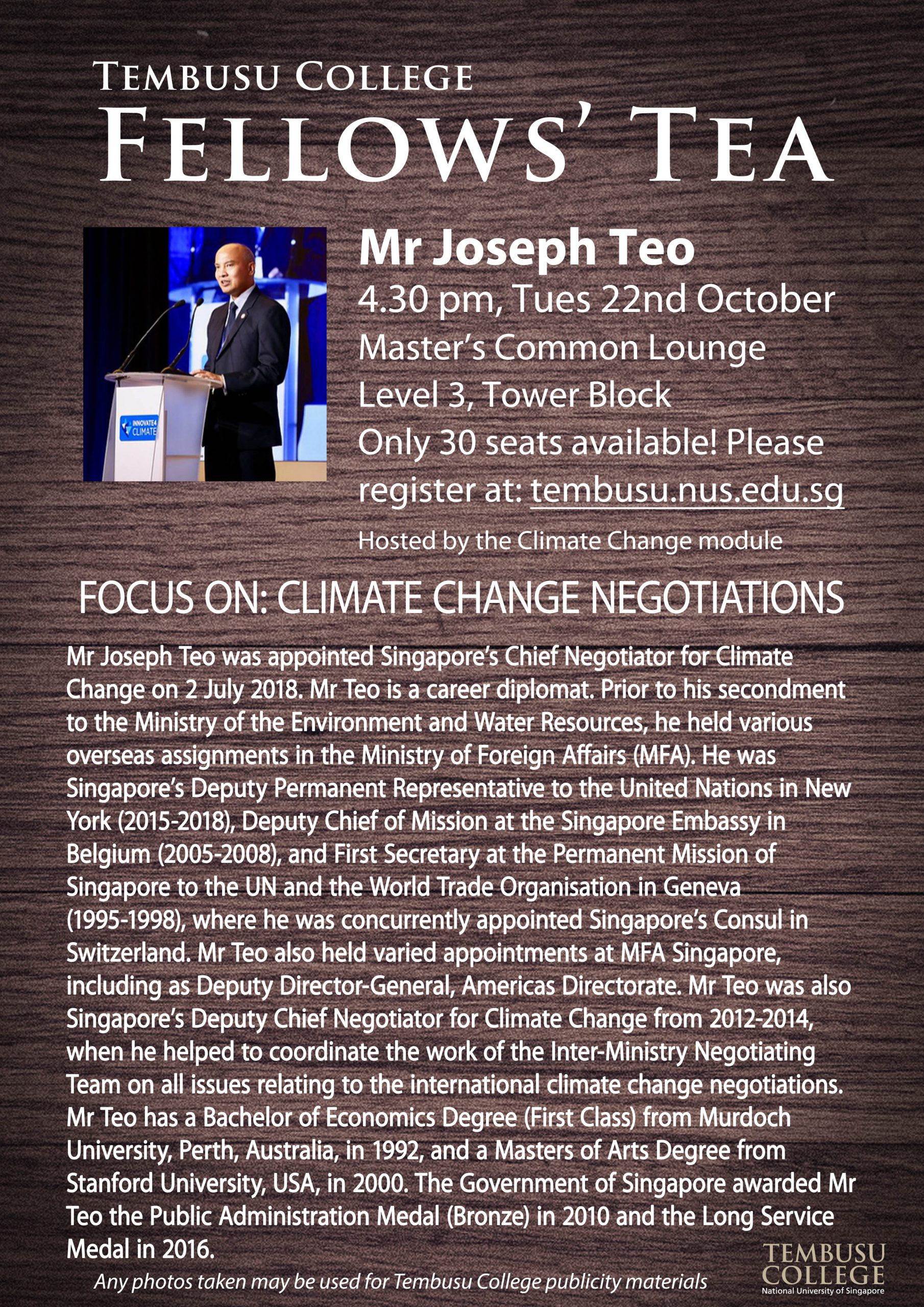Tag: 2019
By Professor Tommy Koh: Five tests that Singaporeans must pass to be a truly First World people
At the Institute of Policy Studies’ Singapore Bicentennial Conference on Oct 1, I made the comment that Singapore is a First World country with a Third World people.
What I meant was that Singapore has many first-rate aspects such as a dynamic economy and excellent quality of life, but that some of our habits as a people did not match those standards.
But on reflection, I should not have used the term, Third World. Several of my friends have pointed out to me that the peoples of some poor countries are kind, gracious and civic-minded. They are right. Indeed, I have friends from across the world, including many from less-developed or Third World countries.
In this essay, I wish to focus on what Singaporeans must do in order to qualify as a First World people. They must pass the following tests.
TEST NO. 1
The first test for Singaporeans to pass is to stop littering. First World people such as the Japanese, South Koreans and Taiwanese do not litter.
In fact, they will pick up litter and dispose of it. They will also confront litterbugs and put peer pressure on them to pick up the litter.
Singapore used to be a dirty and smelly city. When the People’s Action Party came to power in 1959, one of the first things it did was to campaign for a clean Singapore. Nine campaigns were held in the 1960s, three in the 1970s and four in the 1980s to mobilise public opinion and alter the behaviour of Singaporeans towards their environment.
As a result of the campaigns, Singapore has become known throughout the world as a clean city. However, in recent years, more and more Singaporeans have reverted to their old habit. When I look around Singapore today, I see trash everywhere.
Mr Liak Teng Lit, former chairman of the Public Hygiene Council (PHC), which leads the Keep Singapore Clean Movement, was right when he said that Singapore is not a clean city. It is a cleaned city. That is an observation current PHC chairman Edward D’Silva agrees with.
Mr Liak once compared Singapore unfavourably with Taipei. Singapore, with a population of five million, has 70,000 cleaners. Taipei city, with a population of about 2.7 million, has about 5,000 cleaners. In Taiwan, all the schools are cleaned by their students and not by professional cleaners.
We should consider adopting this practice.
Next April 26 is a chance for Singaporeans to clean up their own estates, as town councils have agreed to give cleaners a day off on that day. Instead, it will be residents who will have to clean up their own estates themselves.
The CleanSG Day initiative aims to show “the bulk of heartland residents in Housing and Development Board flats” what happens when litter in public areas is not cleared and to encourage them to keep their estates clean. I urge Singaporeans to embrace the initiative and to step up to keep their estates clean on that day, and to continue the practice every day after that.
TEST NO. 2
The second test is to have public toilets that are as clean as those in Japan, South Korea and Taiwan.
Singapore’s public toilets used to be filthy. The situation has changed for the better because of the joint efforts of a non- governmental organisation and the Government.
There is a remarkable Singaporean called Jack Sim, who founded the Restroom Association (Singapore) and the World Toilet Organisation. With his charisma and missionary zeal, he has made a huge impact on Singapore and the world. It was due to his suggestion that Singapore managed to convince the United Nations to designate Nov 19 as World Toilet Day.
The Restroom Association (Singapore) and the National Environment Agency (NEA) have campaigned for clean public toilets in Singapore. They award three stars to public toilets that meet their minimum standard. The best public toilets, such as those at Changi Airport and Jewel, are given the maximum of six stars.
About 70 per cent of the public toilets in Singapore have been given stars. But the remaining 30 per cent, found in markets, hawker centres, coffee shops and even some restaurants, are still very Third World. A First World people should know how to keep their public toilets clean.
TEST NO. 3
The third test is the test of civic-mindedness and good manners. What are some basic good habits Singaporeans have forsaken? I think many Singaporeans have forgotten how to say “Please” and “Thank you”.
When a lift or train door opens, some Singaporeans rush in without waiting for those inside the lift or train to make their exit first. When riding on an escalator, some Singaporeans do not conform to the rule of standing on the left side of the escalator to allow those in a hurry to move pass them.
On the trains, some young Singaporeans choose to ignore the priority seating sign and instead sit on seats that are reserved for people with disabilities, the elderly and pregnant women. This lack of civic-mindedness is deplorable.
In the hawker centres, many Singaporeans refuse to comply with the request to deposit their trays, plates and bowls in the designated areas after their meals. Many also fail to clean up their tables after their meals.
I also object to the behaviour of some Singaporeans who talk loudly on their mobile phones in restaurants and movie theatres. Some Singaporeans even do not refrain from talking during concerts. In First World countries, people do not commit such inconsiderate behaviour.
A First World people should be active volunteers and generous philanthropists. Due to the leadership of the National Volunteer and Philanthropy Centre, we are making progress in both areas, but we could do better.
TEST NO. 4
The fourth test is the test of cultural literacy. A First World people is a cultured people. A cultured people should be gracious and kind. A cultured people should treat those who serve them with courtesy and appreciation.
A cultured people should have an appreciation of culture and the arts. They should read books and show respect for our poets and writers.
They should listen to music, visit our museums and take an interest in our history and heritage.
In recent years, many Singaporeans have shown an interest in our heritage and culture. This trend is very encouraging.
TEST NO. 5
The fifth test is our attitude towards nature and the environment.
A First World people should love nature and care for the environment. They should know, for example, that climate change poses an existential threat to Singapore and the world.
I think the Singapore Government gets it but I am not sure whether the people do. Many Singaporeans do not understand that most of the energy we consume is produced by power plants using natural gas and that carbon dioxide is emitted in the process. They may not understand that the more energy they use, the more carbon dioxide they are contributing to the atmosphere.
I do not understand why so many Singaporeans insist on setting the thermostats in offices, hotels, restaurants and clubs at 18 deg C, when our comfort level is 23 deg C and the NEA has recommended that we set thermostats at 25 deg C.
Singaporeans waste a lot of energy by over-conditioning their premises. In this way, they are contributing to climate change. I wage a daily struggle with hotels, restaurants and clubs to persuade them to reset their thermostats to 23 deg C. We need the Ministry of the Environment and Water Resources (MEWR) and the NEA to do more on energy saving and efficiency.
Singaporeans show the same irresponsible attitude towards food and water. Wastage is high. Food waste has risen 40 per cent over the past years, from 568,000 tonnes disposed of by households and the food industry in 2008 to around 809,800 tonnes in 2017.
Another distressing habit is for patrons to ask for more water at the end of a meal and for wait staff to fill the glasses to the brim. Many patrons end up taking a few sips of the water and wasting the rest. I see many tables with full glasses of water when patrons leave.
There is so much precious water wasted every day in most restaurants and hotels this way. I strongly support the campaign by the MEWR to make Singapore a zero-waste society. I urge Singapore to have the courage to ban bottled water. Bottled water is qualitatively no better than our tap water and it does a lot of harm to the environment.
CONCLUSION
At the risk of making myself the most unpopular man in Singapore, I stand by my comment that Singaporeans are not a First World people.
I hope that we will pass the five tests I have posed. Only then can we say that Singaporeans are a First World people.
By Professor Tommy Koh: Foreign Domestic Workers: A Suggested Rulebook
By Professor Tommy Koh
There are approximately 250,000 foreign domestic workers (FDWs) in Singapore. My wife and I used to employ domestic helpers in Singapore, New York and Washington. In our relationship with our domestic helpers, we tried to uphold the following rules which I offer for Singaporeans to consider.
She replied that the helper slept either on the couch in the living room or on the floor in the kitchen. I was tempted to ask why they did not let her stay in one of the empty rooms I saw but my wife stopped me. Employers with sufficient room in their homes who do not provide adequate accommodation have a bad attitude towards their helper. Many Singaporeans live in apartments and may lack the space to give the domestic helper a room of her own. In such cases, she should be given sufficient space and privacy in a bedroom shared with family members. I am also unhappy with the size of the so-called maid’s room in some of our new buildings. They are smaller than a prison cell. I appeal to our building authorities to consider prescribing a more generous space for the maid’s room. It is inconsiderate and unkind to build such tiny spaces for our domestic helpers.
My wife and I observed the rule that our domestic helper would eat the same food as ourselves. If we had lobsters for dinner, we would buy one for our helper. We did not ask our helper to eat separate and inferior food. I am sad to say that some employers do not allow their helpers to eat the same food but to eat a different and inferior diet. As a result, some of the domestic helpers in Singapore have complained to the two non-governmental organizations, Transient Workers Count Too (TWC2) and the Humanitarian Organization for Migrant Economics (Home), about inadequate food or poor quality food. In fact, concerns about food and nutrition are among the top five issues raised by FDWs. Many maids are concerned about whether they will have enough to eat when employers go on vacation, leaving them in the home. MOM has even had to send reminders to employers to make arrangements for the FDW to have food! MOM even has to spell out that a requirement that employers must provide FDWs with three meals a day enough for a female engaged in moderate activity! This includes four slices of bread with spread for breakfast, and rice, cooked vegetables, a palm-sized amount of meat, and fruit for lunch and dinner. Media reports periodically crop up of employers who starve their maid. A 2017 case involved a couple who starved their maid for more than a year and caused her weight to plummet from 49kg to 29.4kg. Such behaviour by employers who starve their maids is shameful, especially in an affluent society like Singapore.(Reference: https://www.channelnewsasia.com/news/singapore/domestic-workers-not-given-enough-to-eat-when-employers-away-11016844)
(Reference: https://www.channelnewsasia.com/news/commentary/protecting-foreign-domestic-workers-maids-prevent-care-drain-10189326) In 2011, the International Labour Organization, of which Singapore is a member, adopted the Convention on Decent Work for Domestic Workers. President Halimah Yacob, when she was a trade unionist, played a major role in the adoption of the convention. The convention came into force in 2013 and has 29 States Parties. The convention requires a State Party to guarantee domestic workers the same rights as other workers, regarding daily and weekly rest periods, working hours, overtime compensation, paid annual leave and adequate protection against violence.
I hope that, one day, Singapore will become a party to this convention.
Rule No. 1: Treat her as a fellow person
The most important rule is to treat your domestic helper as a fellow human being. She does not belong to some inferior sub-species of the human family. She is also not your slave. She is entitled to respect for her human dignity. Poverty has caused your domestic helper to leave her family to come and work for you. She has made a huge self-sacrifice in order to send money home to her family. Show some understanding and appreciation. The FDWs have enabled our women to pursue their careers. They cook for us and keep our homes clean and tidy. They look after our children and grandchildren, our aged or disabled parents or grandparents. The comfortable life we enjoy in Singapore is due, in no small part, to the FDWs.Rule No. 2: Treat her as a family member
The second rule is to treat your domestic helper as a member of your family. When we went out to eat, in New York or Washington, we would invite our domestic helper to join us. When we went on an excursion, we would bring our domestic helper along. We even took them to see shows on Broadway. When we had no visitors, we would eat our dinners in the kitchen and asked our domestic helper to join us. Since our domestic helper is a member of our family, she should be entitled to follow us, wherever we go. No hotel, restaurant or club should bar the entry of our domestic helper. In this respect, the Tanglin Club, the American Club and the Cricket Club should emulate the good example of the Singapore Island Country Club.Rule No. 3: A room of her own
My third rule is to provide your domestic helper with a room of her own. At the moment, the Ministry of Manpower (MOM), does not require an employer of a domestic helper, to provide her with a room of her own. I appeal to MOM to consider making this a requirement for the employment of a domestic helper. We all need privacy. The domestic helper is no exception. After a day’s hard work, she needs to have a private space she can retire to, to rest, to listen to music, to watch TV and to talk to her family back home. I remember visiting the home of a wealthy friend. He showed me around his spacious new house. At the end of the tour, I asked him and his wife where was the domestic helper’s room.She replied that the helper slept either on the couch in the living room or on the floor in the kitchen. I was tempted to ask why they did not let her stay in one of the empty rooms I saw but my wife stopped me. Employers with sufficient room in their homes who do not provide adequate accommodation have a bad attitude towards their helper. Many Singaporeans live in apartments and may lack the space to give the domestic helper a room of her own. In such cases, she should be given sufficient space and privacy in a bedroom shared with family members. I am also unhappy with the size of the so-called maid’s room in some of our new buildings. They are smaller than a prison cell. I appeal to our building authorities to consider prescribing a more generous space for the maid’s room. It is inconsiderate and unkind to build such tiny spaces for our domestic helpers.
Rule No. 4: Feed her well
My fourth rule is to provide your domestic helper with adequate and nutritious food.My wife and I observed the rule that our domestic helper would eat the same food as ourselves. If we had lobsters for dinner, we would buy one for our helper. We did not ask our helper to eat separate and inferior food. I am sad to say that some employers do not allow their helpers to eat the same food but to eat a different and inferior diet. As a result, some of the domestic helpers in Singapore have complained to the two non-governmental organizations, Transient Workers Count Too (TWC2) and the Humanitarian Organization for Migrant Economics (Home), about inadequate food or poor quality food. In fact, concerns about food and nutrition are among the top five issues raised by FDWs. Many maids are concerned about whether they will have enough to eat when employers go on vacation, leaving them in the home. MOM has even had to send reminders to employers to make arrangements for the FDW to have food! MOM even has to spell out that a requirement that employers must provide FDWs with three meals a day enough for a female engaged in moderate activity! This includes four slices of bread with spread for breakfast, and rice, cooked vegetables, a palm-sized amount of meat, and fruit for lunch and dinner. Media reports periodically crop up of employers who starve their maid. A 2017 case involved a couple who starved their maid for more than a year and caused her weight to plummet from 49kg to 29.4kg. Such behaviour by employers who starve their maids is shameful, especially in an affluent society like Singapore.(Reference: https://www.channelnewsasia.com/news/singapore/domestic-workers-not-given-enough-to-eat-when-employers-away-11016844)
Rule No. 5: Never be violent
My fifth rule is that, under no circumstances can an employer behave violently towards his helper. It is shocking to read so many horror stories in our media about employers physically abusing their employees. I wonder how a civilised country like Singapore produces such human monsters. It is a sad truth that we have compatriots who are sadists and psychopaths, or who are mentally so disturbed they vent their rage on innocent and vulnerable people. I wish MOM could require every potential employer to go for a psychological test. It would help to disqualify the psychopaths and sadists from the right to employ domestic helpers. I am glad that our police and our courts take a serious view of such physical abuse. Under our Penal Code, a judge could increase the punishment for an offender of a domestic helper by one and a half times. The court could also bar such an offender from employing domestic helpers.Rule No. 6: No verbal abuse
My sixth rule is no verbal abuse. A domestic helper has the right to be protected against both physical and verbal abuse. A helper who is subjected daily to verbal abuse by her employer would suffer psychological damage. She would feel humiliated and depressed. She would feel a loss of self-respect and dignity. The employer and his helper enjoy an unequal power relationship. In such a situation, we cannot expect the helper to stand up to her abusive employer. The abused employee needs our help. I am glad that we have TWC2 and Home to champion their cause, and that our ministry and law enforcement officers take abuse seriously.Rule No. 7: Give enough rest
My seventh rule is that the domestic helper is entitled to adequate rest. Since 2013, the law requires all employers to give their domestic workers a weekly day of rest. According to Madeleine Poh, writing in the Singapore Law Review, not all employers have followed the law. In addition to a weekly day of rest, a good employer should also give his employee some rest time every day. My wife used to give our domestic helpers, two hours to rest every afternoon. Employers should remember that their domestic helpers are human beings and not robots or machines. When my wife and I entertained at night, we would tell our domestic helper to go to her room to rest at 10 pm.Conclusion
In Singapore, foreign domestic workers are protected by the Penal Code and by the Employment of Foreign Manpower Act. They are not protected by the Employment Act, unlike Hong Kong which covers them under the Employment Ordinance.(Reference: https://www.channelnewsasia.com/news/commentary/protecting-foreign-domestic-workers-maids-prevent-care-drain-10189326) In 2011, the International Labour Organization, of which Singapore is a member, adopted the Convention on Decent Work for Domestic Workers. President Halimah Yacob, when she was a trade unionist, played a major role in the adoption of the convention. The convention came into force in 2013 and has 29 States Parties. The convention requires a State Party to guarantee domestic workers the same rights as other workers, regarding daily and weekly rest periods, working hours, overtime compensation, paid annual leave and adequate protection against violence.
I hope that, one day, Singapore will become a party to this convention.
By Professor Tommy Koh: Seven good habits for Singapore bosses to emulate
Each year, I look at the Mercer Index of Employee Engagement in the Asia-Pacific. Fourteen countries are included in the index. Singapore has consistently been ranked 13 out of 14. Japan occupies the last place.
What is employee engagement? An engaged employee is one who is loyal to his company. He believes in the objectives and values of the company. He is an enthusiastic worker. He is willing to go beyond the call of duty. He feels respected and valued. He feels that he is being fairly compensated. He feels empowered. He is willing to recommend his company to his friends.
In contrast, the disengaged employee is a dispirited employee. He has no enthusiasm for his company or his work. He does not feel respected or valued. He does what is required and no more. He will jump ship if he is offered a better salary or a job with better prospects.
Employee engagement is important for three reasons.
First, an engaged employee is less likely to leave his employer than a disengaged employee. Companies with high employee engagement will have a lower attrition rate.
Second, an engaged employee is a more productive worker than a disengaged one. A Gallup survey found that highly engaged teams are 21% more productive and have 28% less internal theft than those with low engagement.
I suspect that one reason for our unimpressive productivity increase is our low employee engagement.
Third, companies with higher employee engagement are more profitable than those with lower employee engagement. The report of the Singapore Employee Engagement Index, stated that “employee engagement is an important driver of performance and productivity”. In then-Finance Minister Tharman Shanmugaratnam’s 2014 Budget speech, he said: “Raising productivity is at the centre of our economic agenda.” He also said that, “policy makers have shifted to focussing on more progressive ideas, such as, digitalisation and the development of stronger human capital”.
Causes For The Low Employee Engagement
Why is Singapore’s employee engagement the second lowest in the Asia-Pacific?I think one reason is the bosses of Singapore. It is, of course, true that Singapore has many good bosses, both in the public and private sectors. But I think it is also fair to say, based on anecdotal experience and stories from Singaporeans, that some bosses in Singapore suffer from certain bad habits. I would like to suggest that, to counter these bad habits, they consider doing the opposite, and follow seven good practices.
No. 1 : Inspire love, not fear
In the book entitled The Prince, the Italian diplomat, Niccolo Machiavelli, said that “it is safer to be feared than loved, if you cannot be both.”I think Machiavelli has many followers in Singapore. You can rule slaves by fear but not employees. A boss who tries to rule by fear will certainly have very disengaged employees. A fearful employee is not an engaged employee or a productive employee.
When I was a very young lawyer I once worked for a brilliant boss who had a bad temper. He would shout at his staff for the smallest mistakes. The staff lived in fear of him. One day, I plucked up the courage to confront him. I told him that he should stop shouting at his staff. I also told him that he should show more appreciation and kindness towards his hardworking staff.
I expected him to sack me but he did not. Things got better after that.
Singapore bosses should not aspire to be feared if they want better workers. Instead they should aimto be loved.
No. 2 : Delegate, not control
Some bosses can be control freaks. They want to micro-manage the work of the company. They do not know how to delegate. Under such a regime, employees feel disempowered. They do not have opportunities to grow.
Singapore’s hierarchical culture and risk-averse mindset may be breeding grounds for control freak bosses. Some bosses are reluctant to delegate because they think it will diminish their power. Other bosses are reluctant to delegate because they have no confidence in their subordinates and are fearful of the consequences in case they make mistakes.
No boss can perform well without knowing how to delegate well, as they need to rely on others to get things done. Good bosses should delegate rather than rely on control.
No. 3 : Be generous in praise
One bad habit of many Singapore’s bosses is that they are generous with criticism but stingy with praise. There is something in our culture which makes our parents reluctant to praise their children and our employers praise their employees.
When I started working in the public sector, 51 years ago, I was told that if the boss did not scold me, it meant that I was doing well.
The result is that employees are frequently scolded by their bosses for their mistakes and shortcomings but seldom praised for their good work. The annual appraisal system does not help, with bosses often not giving feedback on their staff’s work until appraisal time, when they mark down their staff’s performance.
Singapore’s bosses can be more generous with praise and stingier with criticism. Employees need psychic income as well as monetary compensation.
No. 4: Pay workers well
I was once an independent director of a bank. On one occasion, we were considering the compensation package for our CEO. The Director of Human Resource proposed a salary of $7 million and asked the board whether it was enough. I asked him what was the median income of the company. He said he did not know.
It would be a good practice for every HR director and every CEO in Singapore to know the median income of their own company.
The situation in Singapore is that the CEOs of many of our companies are paid multiples – as much as 50 to 100 times – more than the average employee.
To be sure, this is not excessive compared to America, where the CEO-to median pay ratio is 278!
Such a disparity in income between the top and the median is one reason for the global movement by the 99 percent against the top 1 percent. We should watch out before this movement arrives on our shores.
I have a friend who owns several restaurants. I once asked her whether she had trouble recruiting employees and in retaining them. She answered in the negative. She explained that she paid her employees wages which are slightly higher than the market rate and they also had a share in the company’s profits. As a result, she had very engaged employees. I would like to see the practice of profit sharing adopted by more of our companies. It used to be the norm in Singapore, during my father’s time. It would be a good practice to return to in today’s society.
No. 5: Do not treat people as invisible
The fifth bad habit of some bosses is to treat their employees as “invisible people”. How many bosses know the names of the cleaning, security or canteen staff?
Employees want to be respected by their employers, no matter how humble their jobs. There is a famous story of President John Kennedy visiting the National Aeronautic and Space Agency (NASA). He met a man, who worked there as a cleaner. When President Kennedy asked him what he did, he replied that he was trying to put a man on the moon. This is how an engaged employee felt about his humble job. He felt that he was a member of a team and the team’s mission was to put a man on the moon.
A good employer should try to know the names of his employees. A good employer should show respect for every employee, including the tea lady and the cleaner. If the employer treats his employees well, they will more than repay him with loyalty and high performance.
No. 6 : Share credit
No worker likes a boss who claims credit for the work of their employees. A good boss should behave as the leader of his team. If members of the team have put in an extraordinary performance, the boss should acknowledge their achievements and not claim credit for their contributions.
As a boss, I do my best to give credit to the other members of her team. I often feel that I don’t need the recognition but the younger members of the team do. It is the duty of a good boss to mentor his younger colleagues and to help them to make progress in their careers.
To give a personal example, I was the leader of the Singapore delegation which negotiated the Free Trade Agreement with the United States. In my speeches, I always praised the contributions of the other talented members of the delegation, such as Ong Ye Kung, Ravi Menon, Daren Tang, Neo Gim Huay, Rossman Ithnain, Valerie D’Costa, Minn Naing Oo, Ong Yen Her and Loh Ah Tuan.
No. 7 : Care for workers’ welfare
Many bosses have a transactional approach to their staff and show no interest in the welfare and aspirations of their employees.
A good boss is interested in the welfare of all his staff. If any of them is going through a family crisis or faced with a major health problem, the boss should take a personal interest in that employee and try to be helpful. A good boss should also try to mentor his employees and help them in their career development.
I know of a case when an employee’s child was in critical condition in a hospital. The boss took time off from his work in order to be at the hospital to give comfort and support to his employee. The child eventually recovered. The concern shown by the boss was deeply appreciated, not only by the mother of the sick child, but by all the employees of the company. It raised the morale of the staff to have a boss who cared.
Conclusion
The Ministry of Manpower, the National Trades Union Congress and the Singapore National Employers Federation should be concerned at the low employee engagement in Singapore. In my view, the root cause is not the employees but the employers. We need to get our bosses to adopt positive habits. Get our bosses to stop using fear, to praise more and scold less, to delegate rather than control, to share credit, to pay workers better and to care more for their welfare and make workers feel valued.
If we don’t try to persuade our bosses to stop bad habits and adopt good ones, we will remain 13 out of 14 in the Mercer Index.
Given the well-documented link between employee engagement and productivity, the future of Singapore’s economic competitiveness will depend, in part, on the ability of bosses to harness our workers better.


